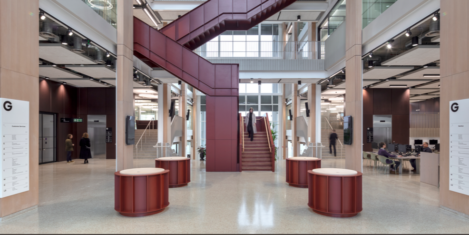To provide the best experiences, we use technologies like cookies to store and/or access device information. Consenting to these technologies will allow us to process data such as browsing behaviour or unique IDs on this site. Not consenting or withdrawing consent, may adversely affect certain features and functions.
The technical storage or access is strictly necessary for the legitimate purpose of enabling the use of a specific service explicitly requested by the subscriber or user, or for the sole purpose of carrying out the transmission of a communication over an electronic communications network.
The technical storage or access is necessary for the legitimate purpose of storing preferences that are not requested by the subscriber or user.
The technical storage or access that is used exclusively for statistical purposes.
The technical storage or access that is used exclusively for anonymous statistical purposes. Without a subpoena, voluntary compliance on the part of your Internet Service Provider, or additional records from a third party, information stored or retrieved for this purpose alone cannot usually be used to identify you.
The technical storage or access is required to create user profiles to send advertising, or to track the user on a website or across several websites for similar marketing purposes.
 Sunderland City Hall was celebrated as ‘Best of the Best’ at the British Council for Offices’ (BCO) National Awards at the Grosvenor House hotel in London last night, also taking home the ‘Corporate Workplace’ award. The office was joined by six other award winners recognised as leading examples of excellence in office space across the UK. The BCO’s National Awards programme claims to recognises top quality office design and functionality and says it sets the standard for excellence across the office sector. More →
Sunderland City Hall was celebrated as ‘Best of the Best’ at the British Council for Offices’ (BCO) National Awards at the Grosvenor House hotel in London last night, also taking home the ‘Corporate Workplace’ award. The office was joined by six other award winners recognised as leading examples of excellence in office space across the UK. The BCO’s National Awards programme claims to recognises top quality office design and functionality and says it sets the standard for excellence across the office sector. More →


































October 13, 2022
The success of hybrid working hinges on creating a great workplace experience
by Lee Rubin • Comment, Flexible working, Wellbeing, Workplace